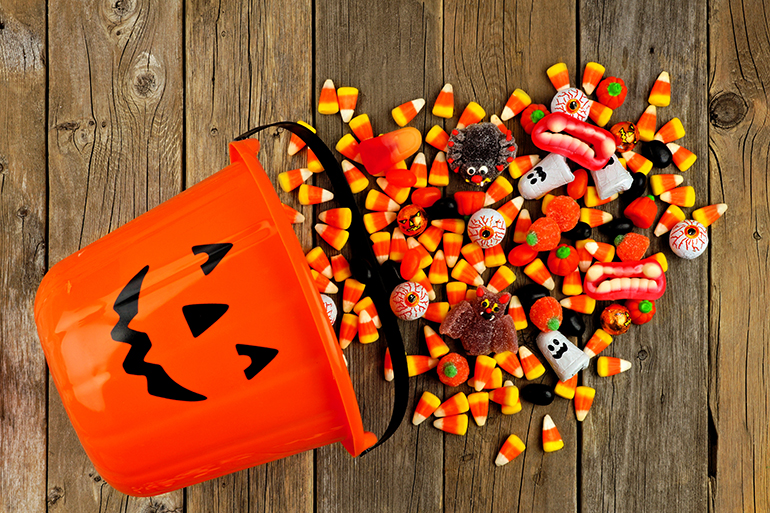
Researchers offer top tips for a healthy Halloween
Like so many other areas of life, Halloween festivities may look a little different this year in the midst of COVID-19. As health authorities ask people to take precautions and parents grapple with what is safe for their children, one thing remains constant: Kids love candy.
To help provide some relief, experts at UBC Okanagan are weighing in on what the best treats are and how to avoid being tricked by clever marketing.
Although sugar doesn’t cause diabetes, eat mindfully says Jonathan Little, associate professor in the Faculty of Health and Social Development’s School of Health and Exercise Sciences
“One of the biggest nutrition myths is that sugar causes diabetes. Sugar intake alone won’t do this; the major risk factors for Type 2 diabetes are age, genetics and obesity. You obviously can’t do much about the first two but your lifestyle can influence your weight status. Excess calories from any source, combined with physical inactivity, can promote weight gain, which in turn, increases the risk for developing Type 2 diabetes.
Also, it is important to monitor sugar and carbohydrate intake for those who have Type 1 or Type 2 diabetes. It should be routine to avoid foods with added sugars and refined carbohydrates. During holidays and festivities rather than reaching for sugary treats, look for those with higher protein and flavour, such as nuts, homemade granola or trail mix, or cheese. Not only will this most likely be healthier, they will also provide more sustained energy.”
Sugar has many disguises, says Wesley Zandberg, assistant professor of chemistry in the Irving K. Barber Faculty of Science
“Sugar is a whole group of sweet-tasting carbohydrates that may often go by other names such as glucose, fructose, lactose, dextrose—anything with the ‘-ose’ ending. Although chemically different, the body sees them as the same, whether from a candy bar or in concentrated fruit juices. And all are very, very high sources of calories.
In the case of whole fruit, though, sugars are also found linked together to form dietary fibres which the body cannot digest and instead powers the good bacteria living in the human gut. So, stick with the whole fruit, not the concentrated juice!
And keep your eye on labels. Smuggled-in sugars could be listed as carbohydrates, fruit juice concentrate, corn, malt or maple syrup. When searching for sugar-free treats, don’t let the labels fool you and learn the sugar synonyms.”
Artificial sweeteners may be harmful to your good gut bacteria, says Deanna Gibson, an associate professor of biology in the Irving K. Barber Faculty of Science
“Artificial sweeteners are calorie-free synthetic sugar substitutes added to food and drinks to make them taste sweet. Although this seems like a good idea, there has been controversy around how healthy and safe these additives actually are. One of their side-effects is that they are toxic to the healthy bacteria in our guts, which are necessary for many bodily functions, including digestion and immunity. In fact, the consumption of these sweeteners has been associated with altering the gut bacteria, throwing off the immune and metabolic balance.
Recently, a study by Raylene Reimer at the University of Calgary has shown that maternal consumption of low-calorie sweeteners including aspartame and stevia during pregnancy pre-programs their offspring to gain weight. This study highlights that artificial sweeteners promote obesity-causing gut microbes that are passed from the mother to their babies.
While eating large amounts of sugar is not good for those with diabetes, eating artificial sugar substitutes are not a healthy alternative. My recommendation is to eat little processed food and enjoy small amounts of natural sugars on Halloween!”